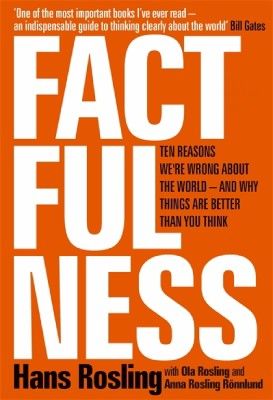Factfulness: Ten Reasons We're Wrong About the World - and Why Things Are Better Than You Think

Seeing the world as it is, not as headlines teach you
Reason to read: A practical reset for anyone who makes decisions with data and suspects their mental model of the world might be out of date.
The book starts with a simple claim. Most of us answer basic questions about global trends incorrectly, not because we are foolish but because our instincts skew what we notice. Rosling names ten of these habits and gives you tools to spot and calm them so your view matches reality more often. The aim is a fact-based worldview that stays steady when stories get loud.
What helped most was swapping binary labels for usable categories. Instead of “developed” and “developing”, think in four income levels and compare like with like before you draw conclusions. Pair that with a bias toward trends over snapshots and rates over raw counts, and you stop rewarding the most dramatic number. When something feels urgent, pause, seek more than one source, and take the next small reversible step. The book turns these moves into habits you can teach.
Why it matters. Builders and leaders need clear baselines and realistic priors. If your worldview is closer to the data, you design better metrics, aim interventions where they compound, and argue less about vibes. The result is fewer performative debates and more progress that can be measured.
Verdict: A clean set of thinking tools that upgrades judgement without stealing your optimism.